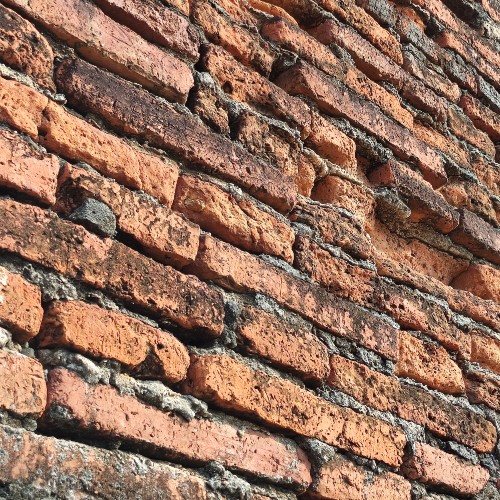What Is Masonry Repair and Why Does Your Chimney Need It?
Your chimney does more than just vent smoke from your fireplace, it plays a critical role in protecting your home from fire hazards, structural damage, and the elements. But over time, the bricks and mortar that hold your chimney together can begin to wear down, crack, or deteriorate. This kind of damage isn’t just cosmetic, it can lead to serious safety issues and expensive repairs if left unaddressed.
That’s where masonry repair comes in. Whether you’ve noticed crumbling mortar, loose bricks, or water stains around your chimney, understanding the basics of masonry repair can help you protect your home and avoid bigger problems down the road. In this post, we’ll explain what masonry repair is, why it’s essential for your chimney’s health, and how to know when it’s time to call in the pros.
What Is Masonry Repair?
Masonry repair refers to the process of fixing damaged or deteriorating brick, stone, mortar, or concrete elements in a structure. Over time, exposure to weather, moisture, and temperature changes can cause these materials to crack, crumble, or shift, putting the stability and safety of your chimney at risk.

For chimneys specifically, masonry repair can involve:
Repointing: Removing and replacing deteriorated mortar between bricks to restore structural integrity.
Replacing damaged bricks or stones: Swapping out cracked, spalling, or loose masonry units with new ones.
Tuckpointing: A specialized form of repointing that improves both appearance and function.
Crown repair: Fixing or replacing the concrete top layer that helps shed water away from the chimney’s interior.
Sealing and waterproofing: Applying protective coatings to keep moisture from penetrating the masonry.
Unlike a full chimney rebuild, which involves tearing down and reconstructing the chimney from the ground up, masonry repair focuses on targeted fixes that preserve as much of the existing structure as possible. It’s a cost-effective way to extend the life of your chimney and prevent small issues from turning into major problems.
Common Chimney Masonry Problems
Even the most well-built chimney can develop problems over time—especially in climates with harsh winters, heavy rain, or high humidity. Here are some of the most common masonry issues home and business owners face:
Cracked or Spalling Bricks: Bricks that are flaking, breaking apart, or falling off (called “spalling”) often indicate water infiltration or freeze/thaw damage.
Deteriorating Mortar Joints: Mortar naturally wears down over time. When it starts to crumble or fall out, it can weaken the entire chimney structure and allow water in.
Chimney Crown Damage: The concrete or mortar slab that tops your chimney can crack or break apart, letting water seep into the masonry below.
Leaning or Tilting Chimney: Structural issues or poor foundation support can cause your chimney to shift, tilt, or pull away from your house.
Efflorescence: This white, powdery residue on brick surfaces is a sign of trapped moisture and often points to bigger water problems inside the masonry.
Flue Tile Cracks or Gaps: While not visible from the outside, damage to your flue liner can affect chimney performance and safety.
Of course, it’s not always obvious from the ground that there are issues with a building’s masonry. That’s why it’s important to be aware of the signs that your masonry may require repair.
Signs Your Chimney May Need Masonry Repair
Regularly checking your chimney for visible damage or performance issues can save you from much more expensive repairs down the line. Here are some red flags to watch for:
Cracked, chipped, or missing bricks
Mortar that’s crumbling, soft, or falling out
White staining (efflorescence) on the chimney exterior
Loose bricks or debris on your roof or around the base of the chimney
Water leaks or stains on walls or ceilings near the chimney
A leaning or uneven chimney structure
Smoky smells or poor fireplace draft, even when the flue is open
If you notice any of these issues, it’s time to schedule a professional chimney inspection. Catching and addressing damage early can prevent structural deterioration, water damage, and potential safety hazards.
Call our expert team at 610-262-6631 to schedule your masonry inspection today.
